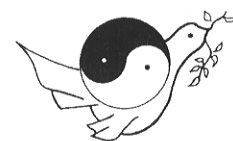
Peace History Society
 |
Peace History Society |
|
Call for Contributions John Lewis and C.T. Vivian, two icons of the racial justice movement known for their courageous nonviolent challenges to segregation and inequality, died in Atlanta on June 17, 2020. They were laid to rest amid a storm of rising COVID-19 case numbers and deaths disproportionately affecting communities of color; of widespread, persistent protests against police murders of Black people; of federal Homeland Security agents descending on Portland, Oregon, and other cities to confront peaceful protesters and whisk some away in unmarked vans; and of rising concerns about voter disenfranchisement for the November election. The recent killings of George Floyd, Ahmaud Arbery, and Breonna Taylor, among others, along with the record-breaking protests have led many organizations to issue statements about their commitment to racial justice and at least some to follow up on those statements with action. Many participants and observers have noted the opportunity for change, saying that it feels “different” this time around. This proposed special issue of Peace & Change represents one way the Peace History Society can contribute to our understanding of the present moment, encouraging and highlighting new scholarship on the relationship between peace and racial justice. What are the animating visions that have driven movements for peace and justice and who participated in them? What connections have activists made between these two causes, and what have they accomplished? How have definitions of peace and racial justice changed over time, and who has had the power to define them? Peace historians and educators are accustomed to thinking about peace as the presence of justice, but these connections beg for further interrogation. How have theoretical connections between peace and justice played out in practice? What have been the challenges and successes in bringing causes of peace and justice together? This issue will go beyond the well- known stories of how African Americans contributed to bringing nonviolent methods into social movements and address more complex connections between peace and racial justice in theory and practice. We are interested in transnational, interdisciplinary, and innovative approaches to themes such as the following:
Essays of up to 10,000 words are due January 31, 2021. Authors must address the guest editor and clearly indicate in a cover letter that the submission is intended for the 2021 special issue. Queries should be sent directly to guest editor Robbie Lieberman at rlieberm@kennesaw.edu. Information about Peace & Change and submission guidelines can be found at: https://onlinelibrary.wiley.com/page/journal/14680130/homepage/forauthors.html |
http://www.peacehistorysociety.org/
Questions or comments
to the web editor.